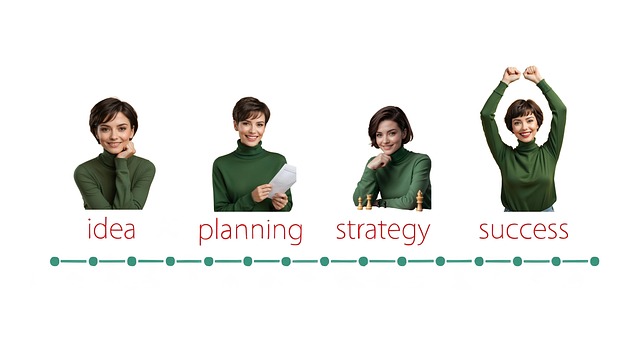Civil commitment ensures rights in mental health cases are upheld through legal frameworks balancing societal protection and individual autonomy. Lawyers defend these rights using evidence-based assessments, narratives emphasizing alternative treatments, and clear communication to navigate complex medical and legal issues under tight deadlines. Post-commitment support empowers individuals with education, coping strategies, and advocacy services, facilitating reintegration while preserving rights like informed consent and privacy.
In the intricate landscape of civil commitment, defending clients facing mental health challenges is a delicate yet critical task. This article navigates the legal framework of understanding civil commitment as a protective measure, emphasizing the crucial rights in mental health cases that must be upheld. We explore strategic defenses, present common court challenges, and delve into effective communication methods to advocate for patient autonomy. Additionally, we discuss post-commitment support, ensuring continuous care and upholding rights beyond initial proceedings.
- Understanding Civil Commitment: A Legal Framework
- Client's Rights: Essential Protections in Mental Health Cases
- Building a Strong Defense Strategy for Commitment
- Challenges in Presenting Client's Case to the Court
- Effective Communication: Advocating for Patient Autonomy
- Post-Commitment Support: Ensuring Continuous Care and Rights
Understanding Civil Commitment: A Legal Framework

Civil commitment is a legal process that involves confining an individual, typically for their own safety and well-being, when they pose a danger to themselves or others. This framework is particularly relevant in mental health cases where individuals may struggle with severe psychiatric conditions. Understanding the nuances of this process is essential as it directly impacts the rights in mental health cases.
The legal framework surrounding civil commitment ensures that individuals are not arbitrarily confined but rather receive appropriate care and treatment while ensuring their freedom and human dignity. It requires a balanced approach, considering both the need to protect society and the individual’s right to autonomy and self-determination. This process involves strict procedures, evidence-based assessments, and regular reviews to ensure compliance with legal standards and the protection of fundamental rights in mental health cases.
Client's Rights: Essential Protections in Mental Health Cases

In civil commitment cases, understanding and safeguarding clients’ rights in mental health scenarios is paramount. These individuals often face significant challenges and require robust legal protection to ensure their well-being and autonomy. Knowing and upholding their rights is crucial for a fair and just process. Clients have the right to be treated with dignity and respect, and any restrictions on their freedom must be narrowly tailored and based on sound medical judgment.
Moreover, clients in mental health cases possess the right to informed consent, meaning they should fully comprehend the nature of their commitment, potential treatments, and associated risks. They are entitled to confidential communication with legal representatives and healthcare professionals, ensuring privacy and trust. Access to adequate legal counsel is essential to navigate complex laws and advocate for their interests, ensuring their rights are not infringed upon during this delicate process.
Building a Strong Defense Strategy for Commitment

Building a robust defense strategy is paramount in civil commitment cases, where an individual’s rights in mental health matters are at stake. The first step involves thoroughly understanding the client’s medical history and current condition. This includes reviewing psychological evaluations, treatment records, and any relevant legal documentation. By doing so, lawyers can identify potential gaps or discrepancies in the prosecution’s case, which may weaken their argument for commitment.
Additionally, advocates should focus on developing a compelling narrative that challenges the need for involuntary commitment. This might involve presenting evidence of alternative treatments, exploring less restrictive options, and demonstrating how the individual’s rights could be better protected through voluntary care. A well-crafted defense strategy not only ensures a fair process but also safeguards the client’s liberties in mental health cases.
Challenges in Presenting Client's Case to the Court

Defending clients in civil commitment cases presents a unique set of challenges, especially when advocating for their rights in mental health cases. One of the primary obstacles is effectively communicating complex medical and legal information to both the court and the jury. Mental health professionals’ testimony is crucial but can be intricate, requiring clear simplification without oversimplifying. Miscommunication might lead to misunderstandings about the client’s condition and treatment options.
Moreover, balancing the client’s right to due process with the need for swift decision-making is delicate. In these cases, courts often face tight deadlines, putting pressure on legal representatives to present compelling arguments quickly. The challenge lies in presenting a comprehensive case that addresses both the client’s immediate needs and their long-term mental health goals, ensuring justice while navigating the complexities of the legal system.
Effective Communication: Advocating for Patient Autonomy

Effective communication is a cornerstone of successful advocacy in civil commitment cases. It’s not just about conveying information but building trust and ensuring patient autonomy. Lawyers must listen attentively to their clients, understanding their fears, concerns, and desires for treatment. Open dialogue allows attorneys to challenge any involuntary treatments while respecting the individual’s rights in mental health cases.
By fostering a supportive and non-judgmental environment, legal professionals can empower patients to make informed decisions about their care. This is crucial as it promotes patient engagement and adherence to treatment plans. Effective communication also enables lawyers to navigate complex ethical dilemmas, ensuring that the client’s wishes are respected while adhering to legal and medical standards.
Post-Commitment Support: Ensuring Continuous Care and Rights

Post-commitment support plays a vital role in ensuring the continuous care and rights of individuals involved in civil commitment cases. Once an individual is committed, it’s crucial to have structured plans in place that address their ongoing mental health needs. This includes access to appropriate treatment, therapy, and regular monitoring by qualified professionals. The goal is to facilitate their reintegration into society while upholding their rights in mental health cases, such as the right to informed consent, privacy, and fair accommodation adjustments.
Additionally, post-commitment support should focus on empowering individuals to manage their conditions effectively. This involves providing education about their mental health condition, teaching coping strategies, and offering advocacy services to navigate the complexities of navigating healthcare systems. By extending care beyond the initial commitment period, we not only uphold the rights of these individuals but also promote their overall well-being and successful reentry into the community.














